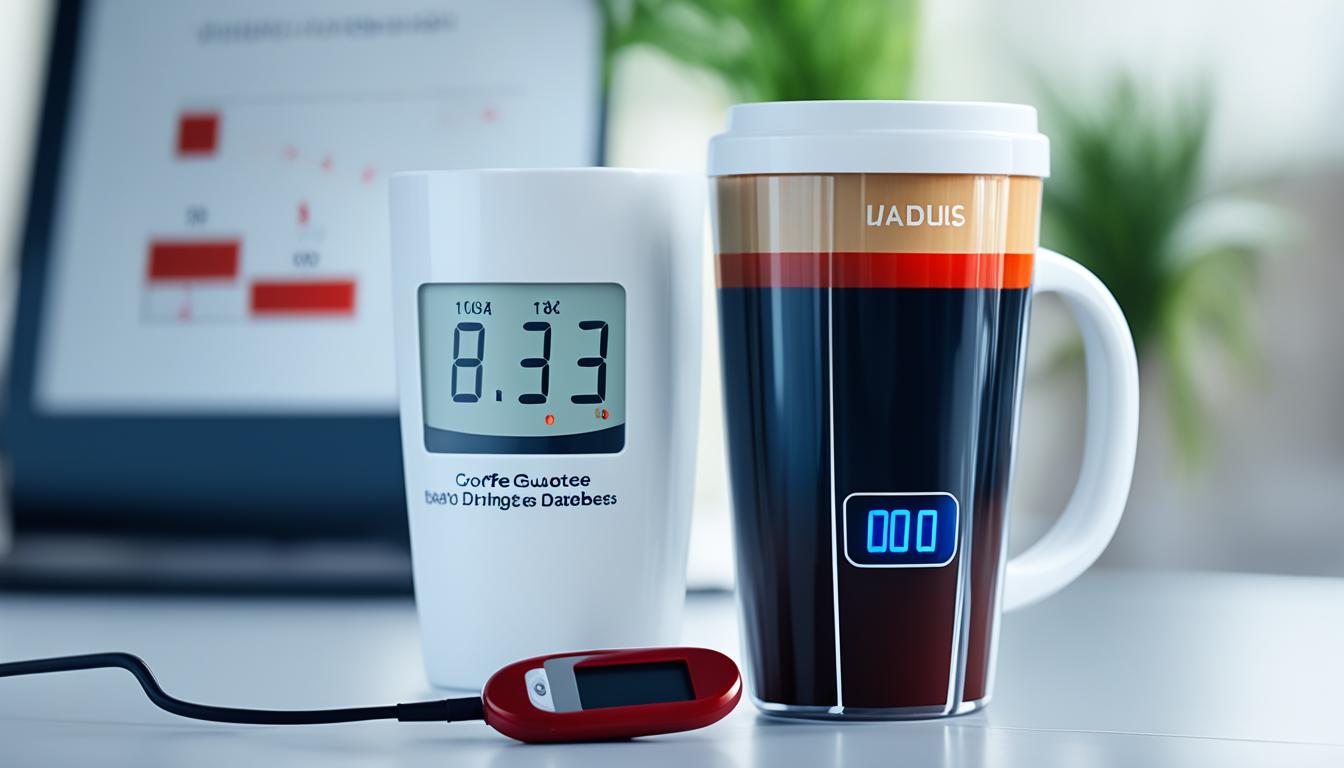Welcome to our article on the benefits of coffee for athletes and its impact on athletic performance. Whether you’re a professional athlete or a recreational fitness enthusiast, you may be surprised to learn how coffee can enhance your exercise routine. The powerful substance found in your morning cup of joe can have significant positive effects on both your physical and mental performance.
Caffeine, the key component in coffee, activates areas of your brain and nervous system, improving focus, energy levels, and reducing tiredness. It also increases circulating epinephrine, the hormone responsible for the “fight or flight” response, which can lead to increased performance during workouts. Furthermore, caffeine has been found to increase fat burning, improve muscle performance, enhance endurance, and promote feelings of wellness.
But does coffee really improve athletic performance? Many studies suggest that moderate consumption of caffeine can have a positive impact on exercise performance. Additionally, nearly 90% of the U.S. population consumes caffeine regularly, making it a widely accessible and popular choice among athletes.
Key Takeaways:
- Caffeine, found in coffee, can improve both physical and mental performance during workouts.
- Caffeine activates areas of the brain and nervous system, improving focus and energy levels.
- Caffeine increases circulating epinephrine, which can enhance overall performance.
- Moderate caffeine consumption can increase fat burning, improve muscle performance, and enhance endurance.
- Nearly 90% of the U.S. population consumes caffeine regularly.
How Caffeine Enhances Endurance Performance
Caffeine is an essential supplement for many endurance athletes, offering significant benefits to their performance. When consumed in moderate doses of 1.4-2.7 mg per pound of body weight, caffeine can modestly improve endurance. It has proven effective in enhancing time trial performance, particularly when combined with a carbohydrate-electrolyte solution.
Both caffeine from supplements and coffee provide similar advantages for endurance exercise performance. Whether in the form of a pill or a cup of joe, caffeine can help athletes push their limits and achieve their goals.
A genetic variation can impact how individuals metabolize caffeine, influencing the extent to which it enhances endurance performance. Some people may experience greater benefits from caffeine supplementation than others.
“Caffeine is like a secret weapon for endurance athletes. It gives us that extra boost we need to push through challenging workouts and races.”
The Effects of Caffeine on Cycling Performance
In the world of endurance sports, cycling is a popular discipline that greatly benefits from caffeine consumption. Research has shown that cyclists who consume caffeine experience significant improvements in their time trial performance.
| Caffeine Dosage | Performance Improvement |
|---|---|
| 3-6 mg/kg of body weight | Enhanced endurance and increased time trial speed |
| Higher doses | No additional benefits, potential side effects |
As indicated in the table above, the optimal caffeine dosage for performance improvement is typically between 3-6 mg/kg of body weight. Athletes should be cautious about consuming higher doses, as it may result in undesirable side effects without any added performance benefits.
The Impact of Caffeine on Time Trial Performance
For endurance athletes participating in time trial events, the use of caffeine can provide a significant advantage. Studies have consistently shown that caffeine ingestion prior to a time trial can improve performance outcomes, allowing athletes to complete the race in a shorter time.
The performance-enhancing effects of caffeine during time trials result from its ability to stimulate the central nervous system, increase focus and alertness, and reduce the perception of effort. This combination of cognitive and physiological benefits contributes to improved performance and greater race results for endurance athletes.
“Caffeine is my secret weapon when it comes to time trials. It helps me stay focused and push harder, even when the fatigue sets in.”
The Effects of Caffeine on High Intensity Exercise
Caffeine’s effects on high intensity exercise can vary depending on the individual and their training status. While it has shown impressive benefits for trained athletes, the impact may be less significant for beginners or untrained individuals.
For trained athletes, caffeine has been found to reduce fatigue and improve exercise duration during high intensity workouts. It can help enhance performance during activities that require short bursts of energy, such as sprinting and anaerobic exercises.
Studies have shown that consuming caffeine before high intensity exercise can lead to improved performance and reduced exertion in some individuals, while others may not experience significant effects. The response to caffeine can vary due to factors such as genetics, tolerance, and overall fitness level.
While caffeine can enhance performance for trained athletes, its benefits may be limited for beginners or individuals who are new to high intensity exercise. In these cases, focusing on proper training and nutrition strategies may be more beneficial in improving performance.
It is important to note that caffeine affects individuals differently, and more research is needed to fully understand the impact of caffeine on high intensity exercise. Consulting with a healthcare professional or registered dietitian can help determine the best approach for incorporating caffeine into a workout routine.
The Influence of Caffeine on Strength Exercises
Research on the use of caffeine in strength or power-based activities is still emerging. While some studies have found positive effects of caffeine on force, power output, and bar velocity in exercises like bench presses, others have not shown significant improvements in muscle strength. The evidence on caffeine’s impact on strength exercises remains inconclusive, and more research is needed to understand the full extent of its effects.
Caffeine and Power-Based Activities
Caffeine has been studied for its potential to enhance power-based activities, such as weightlifting and CrossFit. Some athletes have reported feeling more energized and focused after consuming caffeine before their training sessions. However, the scientific evidence supporting caffeine’s direct influence on power-based activities is limited and inconsistent.
While some studies have shown improvements in muscle power and explosive movements with caffeine supplementation, others have not found significant effects. Factors such as individual sensitivity to caffeine, dosage, and timing of consumption may play a role in determining the outcomes.
The Role of Caffeine in Muscle Strength
In terms of muscle strength, the research on caffeine’s impact is still ongoing. Some studies suggest that caffeine can enhance muscle contractile properties, potentially leading to increased strength. However, other studies have not found significant improvements in maximal strength or muscle force production after caffeine ingestion.
“Caffeine can enhance muscle contractile properties and potentially improve strength, although the current findings are inconclusive”
It’s important to note that individual differences, such as caffeine sensitivity, habitual caffeine consumption, and training status, can influence the outcomes of caffeine supplementation on muscle strength. Further studies are needed to provide more conclusive evidence.
While the precise mechanisms by which caffeine may influence strength exercises are not fully understood, it is believed that caffeine’s stimulant properties and its ability to affect neuromuscular function and fatigue perception could play a role. However, additional research is necessary to determine the specific mechanisms and optimal caffeine dosages for enhancing muscle strength.

| Study | Participants | Findings |
|---|---|---|
| Study 1 | CrossFit athletes | No significant differences in strength performance between caffeine and placebo groups |
| Study 2 | Weightlifters | Improved force production and power output with caffeine supplementation |
| Study 3 | Resistance-trained individuals | No significant differences in maximal strength with caffeine ingestion |
Table: Summary of studies investigating the influence of caffeine on strength exercises.
Caffeine’s Impact on Fat Loss
Caffeine is a powerful ally in the quest for fat loss. It is a common ingredient found in weight loss supplements due to its ability to effectively support the process of shedding unwanted pounds.
One of the key ways caffeine aids in fat loss is by stimulating the breakdown of stored fats in the body. When consumed, caffeine activates the sympathetic nervous system, which triggers the release of stored fats into the bloodstream to be used as fuel. This process, known as lipolysis, enhances fat burning and can contribute to a reduction in overall body fat.
Moreover, caffeine has been shown to increase heat production in the body, also known as thermogenesis. By elevating the body’s temperature, caffeine helps to burn more calories, leading to an increase in fat loss.
Additionally, caffeine has been found to enhance fat oxidation, which refers to the process of using fat as an energy source. By promoting fat oxidation, caffeine encourages the utilization of fat stores during physical activity, boosting the calorie expenditure and further aiding in fat loss.
Consuming caffeine before exercise can have a significant impact on fat burning and calorie expenditure. Studies have shown that individuals who consume caffeine prior to their workout experience greater fat oxidation and increased calorie burning during and after exercise.
However, it is important to note that while caffeine can support fat loss efforts, it is not a magic solution on its own. Achieving sustainable weight loss requires a combination of a well-balanced diet, regular exercise, and healthy lifestyle habits.
The Role of Caffeine in Fat Loss
To better understand the impact of caffeine on fat loss, let’s take a look at the following table that highlights some key findings from recent studies:
| Study | Participants | Caffeine Dosage | Results |
|---|---|---|---|
| Study 1 | 25 healthy adults | 6 mg/kg of body weight | Significantly increased fat oxidation during exercise compared to placebo. |
| Study 2 | 40 overweight individuals | 4 mg/kg of body weight | No significant difference in weight loss between caffeine and placebo groups. |
| Study 3 | 30 trained athletes | 3 mg/kg of body weight | Improved fat oxidation and increased calorie expenditure during exercise. |
As seen in the table, the effects of caffeine on fat loss can vary depending on factors such as the individual’s body composition, caffeine dosage, and exercise routine. While some studies have shown significant improvements in fat oxidation and calorie expenditure, others have found no significant difference.
It is important to consult with a healthcare professional or registered dietitian before incorporating caffeine or any supplements into your weight loss regimen. They can provide personalized advice based on your specific needs and goals.
Conclusion
Coffee and caffeine offer numerous benefits for athletes looking to enhance their performance. The stimulating effects of caffeine on the central nervous system can help reduce fatigue, lower perceived exertion, and improve mental acuity during workouts. As a result, coffee has become a popular choice as a pre-workout drink for many athletes.
When it comes to caffeine sensitivity, it is important for individuals to listen to their bodies. While some athletes may thrive on higher doses of caffeine, others may experience side effects such as increased heart rate, anxiety, insomnia, or stomach discomfort. Finding the optimal caffeine dosage for performance improvement is typically between 3-6 mg/kg of body weight.
It is crucial to remember that moderation is key. Consuming excessive amounts of caffeine can lead to unwanted side effects and may even hinder athletic performance. Gradually increasing caffeine intake and paying attention to personal sensitivity is vital for athletes to fine-tune their caffeine consumption for optimal benefits.
In conclusion, coffee, with its caffeine content, can be an effective performance enhancer when used in the right doses and with caution. By understanding your caffeine sensitivity, finding the optimal dosage, and being aware of the potential side effects, you can harness the benefits of coffee to take your athletic performance to new heights.
FAQ
Does coffee improve athletic performance?
Yes, coffee can improve athletic performance. The caffeine in coffee stimulates the central nervous system, reducing fatigue and improving mental acuity. It can also lower perceived exertion during exercise.
How does caffeine enhance endurance performance?
Caffeine enhances endurance performance by increasing circulating epinephrine, the hormone responsible for the “fight or flight” response. It can improve time trial performance and is effective when consumed with a carbohydrate-electrolyte solution.
Does caffeine improve high-intensity exercise?
The effects of caffeine on high-intensity exercise are mixed. While it has impressive benefits for trained athletes, reducing fatigue and prolonging exercise duration, it may offer fewer significant benefits for beginners or untrained individuals.
Can caffeine improve muscle strength?
The influence of caffeine on strength exercises is still not fully understood. Some studies have found positive effects on force, power output, and bar velocity, while others have not shown significant improvements in muscle strength.
Can caffeine aid in fat loss?
Yes, caffeine can aid in fat loss. It induces fat breakdown, increases heat production, and enhances fat oxidation. Consuming caffeine before exercise can significantly increase fat burning and calorie expenditure.
What is the optimal caffeine dosage for performance improvement?
The optimal dosage for performance improvement is typically between 3-6 mg/kg of body weight. However, individuals should be cautious about consuming high doses of caffeine, as it can lead to side effects such as increased heart rate and anxiety.




